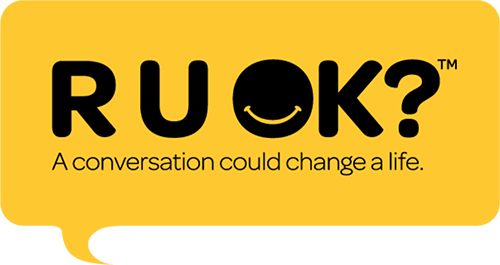Mental Health & Wellbeing
Your mental health is just as important as your physical health and there are many people who understand what it is like to not be feeling like yourself or not coping with things.

Many of us know that socialising, playing sports, getting exercise and plenty of fresh air are great proven activities for bettering our physical and mental health.
However, sometimes the competitive side of the game, negative experiences with others or the environment we play in, can also challenge our mental health. Other pressures from work, social or home life can also weigh on ourselves or those around us.
It can be harder to see when a teammate or club member is struggling with mental health issues. However, we can all play a role in watching out for each other and speaking up to break the stigma around mental health.
Our commitment is to create a safe, healthy and inclusive environment, where players, refs, coaches and families can watch out for each other and interact together respectfully. This means speaking up against poor behaviour and treating others with respect and fairness, and promoting a positive football experience for everyone.
The support organisations listed below provide support (many available 24/7) and understanding people who can help. If you would prefer to speak to someone who already knows you, then please reach you to your family Doctor as they can listen to your concerns and offer advice or even give you a referral to see a counsellor or another professional who can assist and support. Ask your family Doctor about seeing a counsellor under a Medicare treatment plan.
Where to find urgent support
If you need support, help is available:
- Kids & Youth Helpline
Speak with a counsellor at anytime, for any reason. Free and confidential 24/7 phone and online counselling- Call 1800 55 1800 (24 hours a day)
- Talk one-on-one with online counselling
- Connect on Facebook
- Lifeline website or Call 13 11 14 (24 hours a day)
- Beyond Blue 24/7 telephone support – 1300 224 636
- NSW Mental Health Line – 1800 011 511
Getting Help for Mental Health
If you or someone you know is worried about a mental health issue, the first step is talking to your Doctor who can decide what support you might need or refer you to a counsellor or other specialist. If you are under 18 please talk to your parent, guardian, or a close relative about how you are feeling and ask if they can take you to the Doctor.
Where to Start
When you’re not feeling great, its hard to know where to start. These resources are provided to assist:
- Manage your mood
- Calm your emotions
- Know what to say
- Focus on solutions
- 5 steps to tackling your problems
- Good sleep guide
- Self care plan
- Multilingual Resources – Arabic, Chinese, Hindi, Spanish, Vietnamese, Korean, Filipino, Greek, Italian and English
Visit your GP
It is important to be honest with your doctor about how you feel so that they can give you the best support and treatment.
Video – Talking to your GP about your mental health
Tell your doctor:
- your symptoms, thoughts and how you feel
- any circumstances that may be relevant to your mental health
- your concerns (including privacy concerns)
- how what you feel is affecting you
Talking about your mental health can be hard. You can take a family member or close friend along for support. They can also help explain your situation to the doctor, and they can help remember the discussions you had.
Further information is available on the Mental Health – Where to Get Help section of the Health Direct website.
Sport Australia – Importance of Athlete & Coach Wellbeing
- Video – Importance of athlete wellbeing and mental health
- Video – AIS Mental Health Referral Network
- Video – AIS Dane Bird-Smith athlete mental illness and recovery
- Video – AIS Barry Dancer coach mental illness and recovery
What club committees can do
It is important that players, coaches, referees and volunteers of sporting teams are able to open up to each other and have meaningful conversations.
The following can assist clubs in mental wellbeing awareness and supporting players, coaches, referees, volunteers and officials.
- R U OK? – resources for sports teams and coaches
- Good Sports, Healthy Minds – mental health resources
- Orygen – Supporting Youth Mental Wellbeing in Community Sport website
Sport clubs are a great place to help break down stigma and start conversations on mental health.
- Offer free talks or training to members
- Have mental health days or dedicated rounds to raise awareness
- Partner with local mental health agencies and support services.
Club leaders should proactively discuss:
- Creating a mentally healthy workplace for your volunteers and staff
- Creating positive environments for sports participation
- Being inclusive and supportive of people with mental health issues.
Do this by considering:
- Having a good understanding of mental health yourself – be a role model
- Training and educating key people in your club on mental health
- Discussing mental health and risks for your club at meetings
- Develop, adopt and enforce policies and codes which support positive environments (eg. anti bullying)
- Ask members for ideas and listen.
Youth Support Helplines & Websites
Online Youth Forums
Club Programs & Resources
- R U OK? – resources for sports teams and coaches
- Orygen (National Centre of Excellence in Youth Mental Health) – mental wellbeing in community sport toolkit
- Orygen Supporting Mental Health in Community Sport resource – Toolkit for Sports Clubs
- Mental health benefits of playing team sport
- Mental health & wellbeing in community sport
- Supporting mental wellness in sport